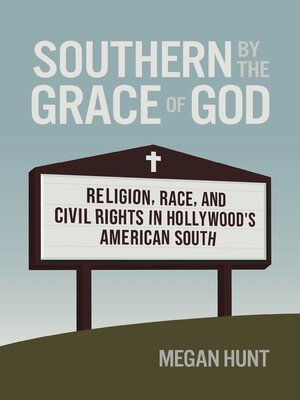Southern by the Grace of God
ebook ∣ Religion, Race, and Civil Rights in Hollywood's American South · Politics and Culture in the Twentieth-Century South Ser.
By Megan Hunt

Sign up to save your library
With an OverDrive account, you can save your favorite libraries for at-a-glance information about availability. Find out more about OverDrive accounts.
Find this title in Libby, the library reading app by OverDrive.



Search for a digital library with this title
Title found at these libraries:
| Loading... |
Like the media coverage of the civil rights era itself, Hollywood dramas have reinforced regional stereotypes of race, class, and gender to cleanse and redeem the wider nation from the implications of systemic racism. As Southern by the Grace of God reveals, however, Hollywood manipulates southern religion (in particular) to further enhance this pattern of difference and regional exceptionalism, consistently displacing broader American racism through a representation of the poor white southerner who is as religious as he (and it is always a he) is racist. By foregrounding the role of religion in these characterizations, Megan Hunt illuminates the pernicious intersections between Hollywood and southern exceptionalism, a long-standing U.S. nationalist discourse that has assigned racial problems to the errant South alone, enabling white supremacy to not only endure but reproduce throughout the nation.
Southern by the Grace of God examines the presentation and functions of Protestant Christianity in cinematic depictions of the American South. Hunt argues that religion is an understudied signifier of the South on film, used—with varying degrees of sophistication—to define the region's presumed exceptionalism for regional, national, and international audiences. Rooted in close textual analysis and primary research into the production and reception of more than twenty Hollywood films that engage with the civil rights movement and/or its legacy, this book provides detailed case studies of films that use southern religiosity to negotiate American anxieties around race, class, and gender. Religion, Hunt contends, is an integral trope of the South in popular culture and especially crucial to the divisions essential to Hollywood storytelling.






